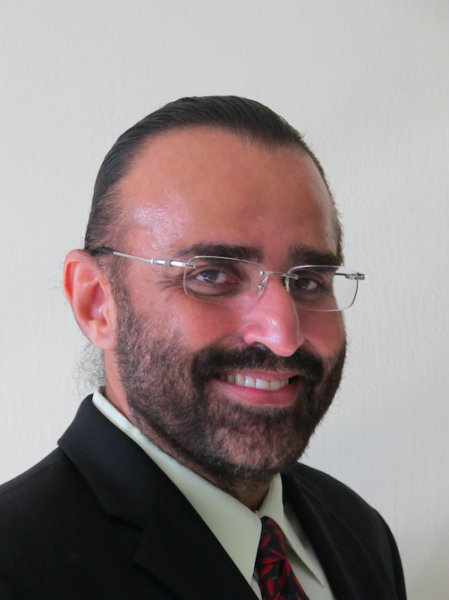Since its inception in Indonesia, Singapore School Bona Vista has grabbed substantial financing from IFC, built schools across the archipelago and delivered high-quality international education to students of all income levels at a fraction of the usual price.
The ancient African proverb “It takes a village to raise a child” has long been quoted when evaluating partnerships required for ensuring early childhood development. One man thinks this ‘village’ has never been more necessary than it is today.
Twenty eight years ago, a Singaporeapn engineer came to Kalimantan, the Indonesian part of Borneo, with the hope of trying his luck in the field in which he wished to be successful. He did not think he would become so enthralled in the challenging world of education that he would make a career out of it – that is until he noticed the country’s alarming shortage of good schools.
Jaspal Sidhu, founder and CEO of the SIS Group of Schools took to heart the responsibility of providing world-class education not only to the archipelago’s elite, high-income families in the country but for practically everyone who wants it.
Sidhu was initially disappointed that while there was a fair number of private schools that offered high-quality education in Indonesia, the average fees across these institutions clocked in at approximately more than US$20,000 per year.
It didn’t take the socio-entrepreneur long to realize what he needed to do. Sidhu set out to create a sustainable, top-notch education experience in Indonesia and make it accessible to as many income levels as possible – a philosophy he made sure was ingrained in all the schools within the group, including the Singapore Intercultural School Bona Vista (SIS BV), from day one.
Fast forward nearly three decades, SIS BV now ranks as one of the top schools in the region. Sidhu attributes this rapid progress to three key elements:
First, the school uses the Singapore Curriculum and teaching methodologies of what has long been recognized as one of the best educational systems worldwide. Sidhu claims this is evident from the Programme for International Student Assessment (PISA) testing by the Organisation for Economic Co-operation and Development, as well as the Trends in International Mathematics and Science Study (TIMSS) test. PISA and TIMSS are recognized worldwide as nuanced metrics for academic success. Students who generally achieve high PISA and TIMSS test results are often those from Singapore schools.
Second, SIS education is largely focused on the “PACE” philosophy, which stands for perseverance, analytical thinking, collaboration and communication and entrepreneurship. Sidhu claims that every teacher, staff member, employee and person in the school has to ensure that PACE is injected into every aspect of the system.
Third, SIS understands that the solution to having top-notch education is smart and passionate teachers. The school has established partnerships with both public and private academic institutions to provide speedy and high-quality training for its instructors.
As SIS claims to provide world-class education centred on its core philosophy and powered by funding from the World Bank’s International Finance Corporation (IFC), the CEO now must look to uphold his original vision of making SIS accessible to families of all income levels.
After building its first SIS campus in South Jakarta, which halved the average tuition rate from international schools in the archipelago, Sidhu went on to build more schools that yet again lowered the cost to US$6,000, this time in Medan, Semarang and other parts of Jakarta. In Palembang, South Sumatra, SIS charges US$1,800 in fees for the entire school year, a fraction of what other international schools charge.
SIS claims to be the only Southeast Asian school that provides two intakes one for those who want to pursue higher education in the Southern Hemisphere (January to December) and one for those wishing to pursue higher studies in the Northern Hemisphere (August to July).
“The bigger opportunities are outside Jakarta,” Sidhu tells Indonesia Expat. “Jakarta has long been saturated with schools, [most of which] are way beyond the financial capacity of those in the region.”
Sidhu added that bringing high-quality education outside the capital city should improve access to further education and ensure equal opportunities for both foreigners and locals alike.
This year, IFC approved a substantial financing facility expansion for the SIS Group, an ingredient that Sidhu believes gives his brainchild a strong advantage in the market.
“IFC did not have second thoughts about partnering with us because it is confident with our mission,” said Sidhu. “The good governance to scale that we have put in place has never been replicated anywhere else.”
The CEO stressed the system’s belief in the power of the human capital and the need to provide professional development across the organization. Sidhu believes providing constructive channels for feedback is an efficient method to ensure professional growth. At SIS, parents are able to criticize teachers, while teachers are able to survey the administration and leaders. Students can also provide feedback on their teachers and methodologies.
“Hiring the right teachers for the school is a big challenge,” he added.
“We work closely with colleges and universities that provide excellent foundations on teacher training, which helps us identify passionate individuals whom we offer internships to. We aim to prepare them for the real SIS work.”
In line with its philosophy that emphasizes promoting better accessibility to high-quality education, the school recently launched a new initiative called ‘SIS for Indonesia’ or SISI. The programme aims to have SIS schools partner with progressive companies across the country and work on mutual agreements that will enable middle-ranking employees to send their children to SIS.
As the son of a humble doorman, the young Sidhu did not understand why his father never appreciated him working in the construction and mining sectors.
“You will not be able to change the world building bridges, roads and skyscrapers. Help children go to school so there will be less of these kids who will have doorman fathers who die poor,” his father advised.
The idea stuck to the now-CEO of one of the country’s biggest chain of schools who has made it a personal vow to help everyone – regardless of nationality, gender, economic status or race – get the best education they deserve.
Sidhu feels blessed to have a great support system, solid community partners, great working relationship with regulatory bodies and a working philosophy that has pushed him to be more passionate about his promise.
He takes pride in helping build that ‘village’ that provides the right tools that help kids grow healthy and safe and ready for life beyond their childhood. And with the myriad of opportunities and challenges that today’s children are faced with, the SIS village welcomes everyone and is determined to build a better future for the younger generation.




